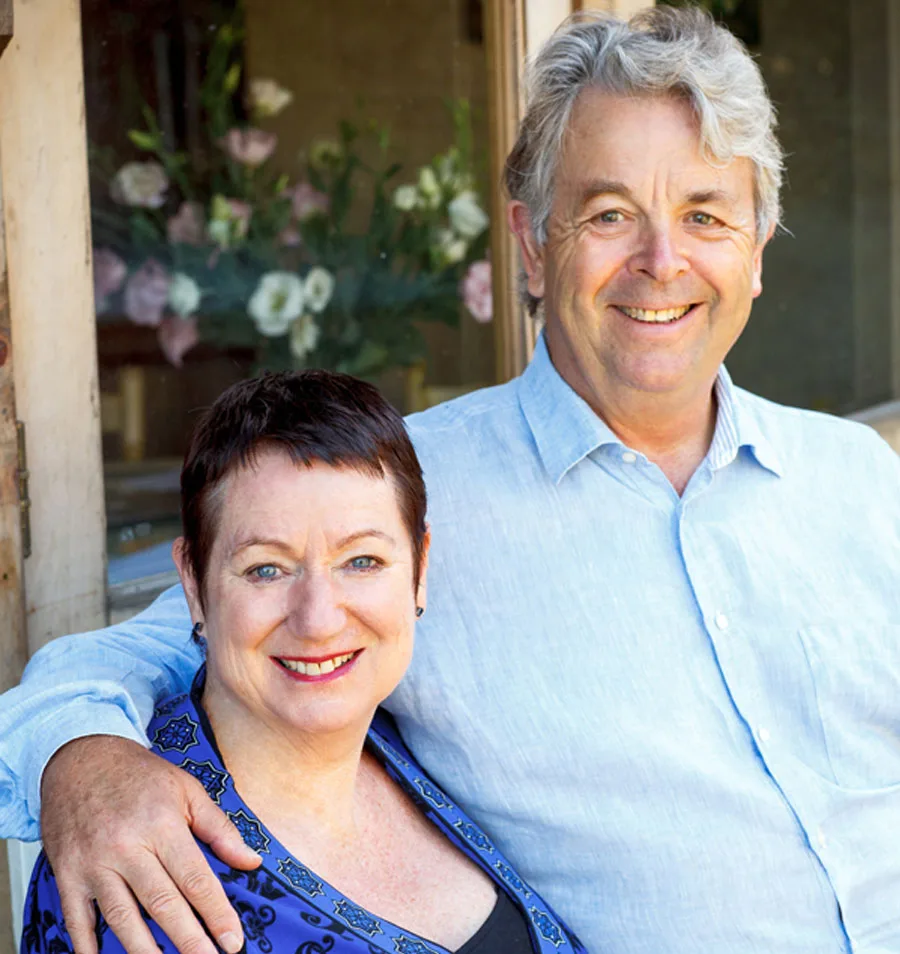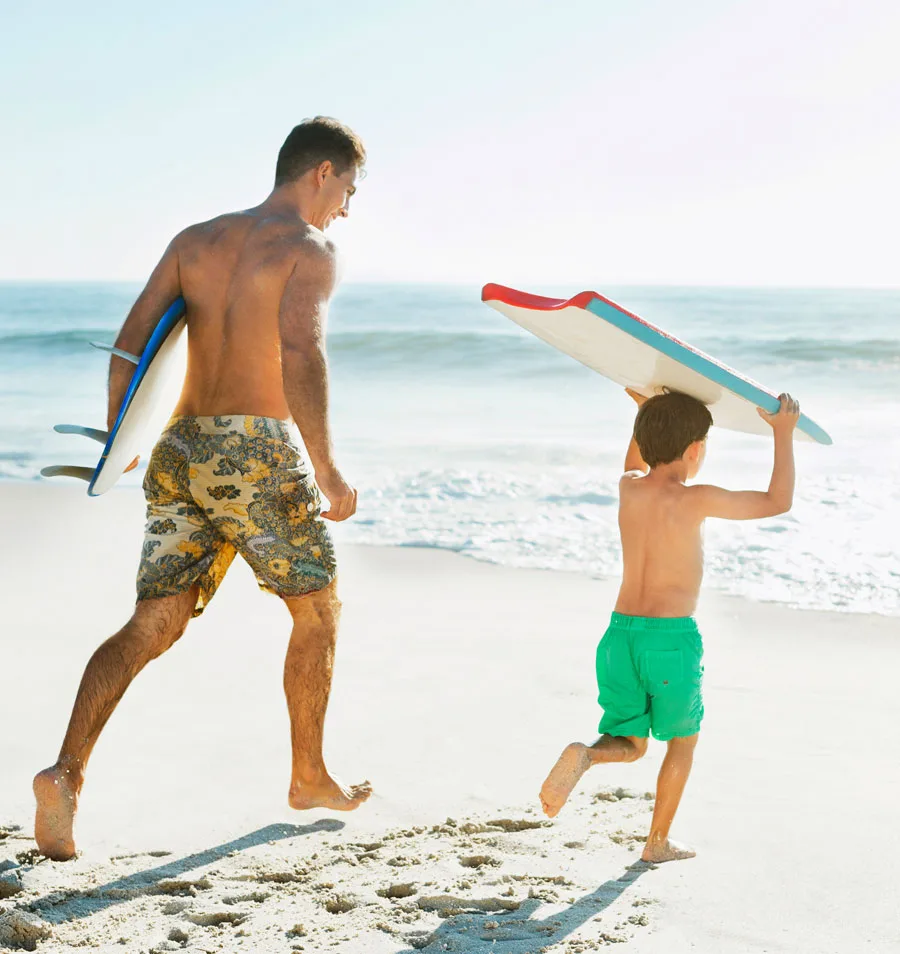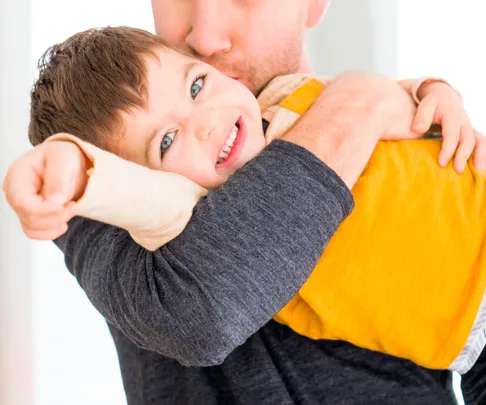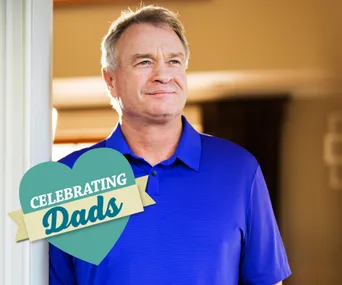If there is one thing Kiwi men could have had more of as boys, it’s praise from their parents, says Richard Aston, CEO of Big Buddy, which matches fatherless boys with male mentors.
During in-depth interviews with potential mentors over his 13 years as CEO, he heard the same issues from childhood arising again and again – a raft of common woes he believed could easily be avoided in the next generation.
“The interviews involve quite deep conversations, and huge confessions were coming out that gave me a really good insight,” says Richard. “The big one was the lack of praise that most men got as kids and how it affected them as adults – how they are always looking for praise in all the wrong places, or filling themselves up with bullshit just to feel good about themselves.
“I saw so many men who could have had a better childhood, had their parents had some knowledge.”
To help give parents that knowledge, Richard joined forces with his wife, Ruth Kerr – Big Buddy’s media co-ordinator, a journalist for more than 30 years, and co-parent of their blended family of four children, Sia, Djan, Lara and Tessa – to write Our Boys.
It’s a book on raising boys in today’s world, and combines Richard’s experience at Big Buddy (which has seen him match 630 boys with mentors) with Ruth’s investigative skills, which she used to research the latest findings on boys and men. They have also called on their own experience parenting their own boy – Richard’s now adult son, Djan.
Ruth was motivated by wanting to help combat New Zealand’s high rate of mental illness, suicide and accidents for boys.
“The stats for boys and men are not optimal, and I would like it if those statistics were different, that they suicided less, that they had more emotional intelligence.”
The book stands out from other parenting books for its accessibility – including warts-and-all admissions by the couple of their own parenting mistakes, practical ways to change the things you are doing wrong (no guilt trips!) and a focus on self-reflection and authenticity. It’s a book that brings parenting advice into 2016 – combining research from relevant leading voices of the past decade with issues facing parents today.
These include praising authentically, counterbalancing screen time with peak experiences in nature, and the changing face of employment and the need for education to follow suit.
Here Ruth and Richard discuss some of the key themes in the book and share insights they’ve gained into parenting boys.
Stop the shaming
We all know what it is like to be shamed or accidentally shame others – and in Our Boys, caregivers are encouraged to become aware of their language to prevent doing it to our boys.
“It’s so easy to do and it is when you are disciplining that the shame normally comes out. The key is to say no to the behaviour and yes to the person,” says Richard. “It’s so easy to go, ‘You dirty little brat,’ instead of, ‘You need to wash yourself. We wash ourselves in this house.’ It doesn’t sound much, but the impact of the first one is deep in his psyche, even though he’ll just go, ‘Uh, whatever.’
“There are enough shaming messages around without the parents adding to the mix, because they are the most powerful influence in a child’s life. Otherwise, the bag of shame they carry around with them just gets bigger and bigger. Too much shame unprocessed in men will come out as violence – violence to others or violence to themselves.”
Healing with apologies
If you are panicking right now, don’t. Richard says the best thing you can do is to be conscious of your mistakes, forgive yourself and then to apologise.
“You can change it. Within the next day or within 24 hours is best. You can say, ‘I’m sorry that I shamed you when I said you were a dirty little brat – it’s not what I meant.’”
Ruth continues. “Say, ‘I’m not saying what you did was okay, but I didn’t handle it well either. How are we going to do this differently next time?’ And then you are in that situation of your heart opening, the oxytocin hitting, and it is a different conversation.”
She says apologising the next day is ‘leaning in’, the term made famous by Facebook boss Sheryl Sandberg’s book on women in the workplace.

Identify yourself
In the process of building their male psyche, boys model themselves on the older men in their life, and Richard says this requires authentic self-reflection on the man’s part.
“That’s not an older man saying, ‘Here are your goals, this is your vision for the future.’ It is more organic than that,” he explains. “A seven-year-old is going to absorb this stuff. You can feel when a young guy has his radar on you, and that requires asking yourself, ‘Who am I?’”
But he says this does not necessarily mean changing who you are – just getting real about it. “Be who you are and be honest and authentic about it. The worst thing you can do is be a little bit homophobic and racist but be saying, ‘I am a very liberal person,’ because the little boy will be getting who you really are on his low-level radar – and that is just confusing.”
The demands of the digital age
Parenting boys effectively in the digital age requires a counterbalance with exercise and nature.
“We are not dissing the digital age,” says Richard. “It is fantastic. Google is a beautiful thing, but for boys who have this action-orientated physicality, we think the balance needs to be a lot of wilderness time.”
And Ruth says outdoor adventures can deter drug use. “When boys hit their teens, they can look for peak or subliminal experiences through using drugs, but actually they can get those in the wilderness – we’ve all experienced that while on a tramp, standing on a rocky mountain, surfing or snowboarding.”
“Boys are hardwired for risk,” says Richard. “You can get risk in computer games, but it is very cognitive. On the other hand, when you are sailing and you think, ‘If I pull the rudder a little bit too much this way, we are all in the water,’ that’s real risk and it enlivens us.”
Richard recalls a talk he attended by Principal Youth Court Judge Andrew Becroft on why managed risk is essential for boys.
“He showed us a picture of young guys using a four-wheel drive like a skateboard trying to drive up cliffs – and of course it rolled over. He said, ‘They just want to take risks, but they never learnt how to do that as kids, so they are doing it with cars now’.
“If they get into their little trolley when they are young, go down a steep hill and break their leg, the lesson is, ‘If I go too fast, I lose control and when I lose control it really hurts’. That basic message learnt at seven will see that boy right when he is 16 and in charge of a souped-up Mazda.”

The changing face of education
One of the issues Ruth and Richard are hottest about is education. They believe play in the early childhood years should not be replaced by early literacy and numeracy education.
“We plainly say hot housing is bollocks,” says Ruth. “There are educationalists who will totally disagree with that, and we are aware that it will not be a universally accepted view, but, actually, research shows it doesn’t help in any way in terms of long-term achievements.”
Richard says although some believe teaching children the education basics at the preschool level will give them a head start, he firmly disagrees. “Think that through – if he is ahead of everyone else, what does that mean for him socially? That he’ll be the bright geeky kid? Stuff that.
And it doesn’t actually give him a head start because what he really needs to engage with at that age is his imagination – if you have an active imagination and creativity, you will be able to teach yourself stuff. We believe day-care centres should be renamed play-care centres.”
Ruth adds that “New organisations like Google are looking for ‘C skills’. They are collaboration, cultural awareness, creative thinking, co-operation and critical thinking. It’s the ability to work with other people.”
See your child as an individual
Richard and Ruth learnt that each of their four children was deeply individual, and it was more important to notice who they were becoming, than to drive their own expectations into them.
“Thinking has moved on since it was believed that a child is born as a blank slate,” says Richard. “Findings in neuroscience and genetics are telling us these are vibrant people already, who are coming into this world equipped with their own sense of destiny and their own sense of self developing. Our job as parents is to be alongside that.”
Ruth uses the example of Djan. “He left school early for a number of reasons and we were terrified for his future, so Richard got him a job training to be a computer engineer and off he would go each day with his shirt and tie, and we thought, ‘Thank God!’ Then one day he came home and said, ‘I want to quit and go off snowboarding with my mates.’”
“I could hear my father talking” says Richard “as I was saying, ‘But what about your future?’ Then he said the magic words to me: ‘Dad, I just want to have an adventure,’ and I thought, ‘Who doesn’t?’ And what an education an adventure is, really. English literature is full of people who went out and had adventures and grew up because of it.”
And the result? “He has been so successful in ways we had never imagined,” says Ruth. “He now owns snowboard shops in Japan and employs more than 120 people.”



